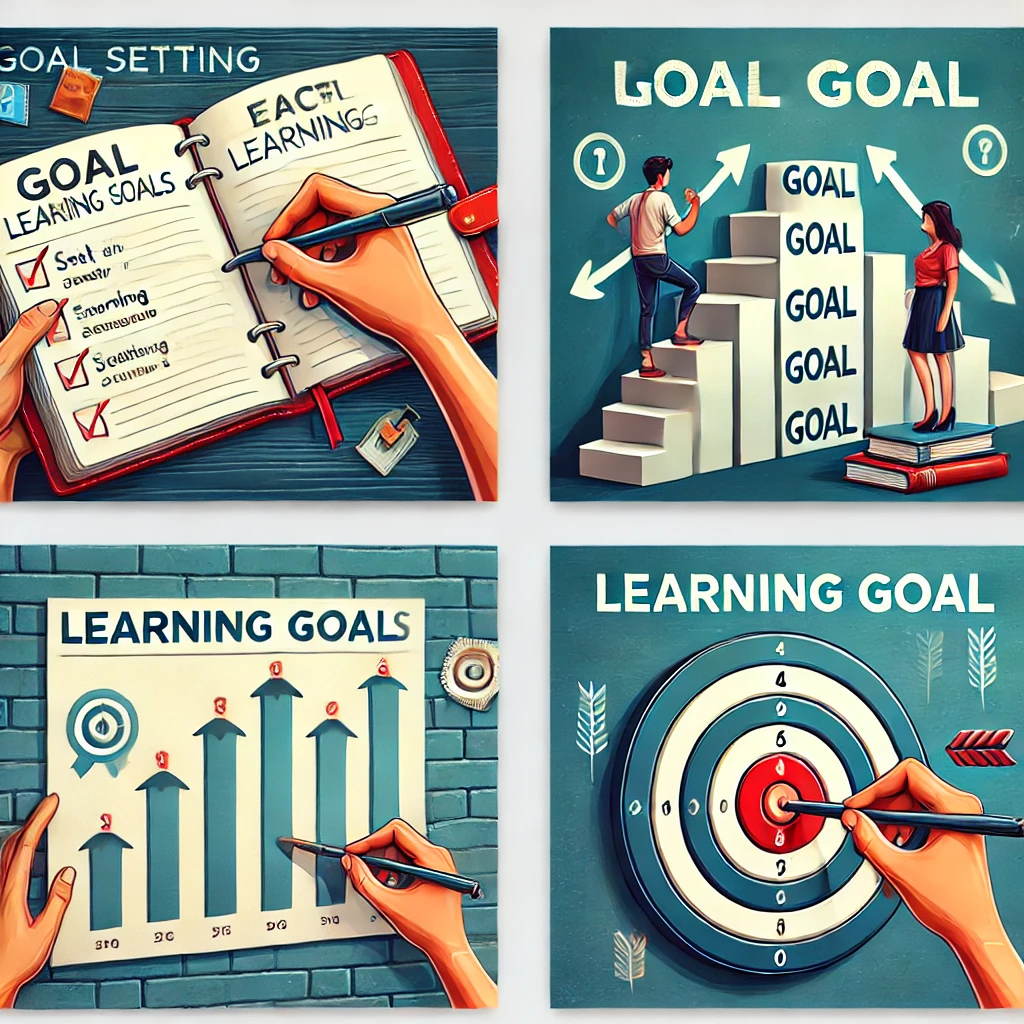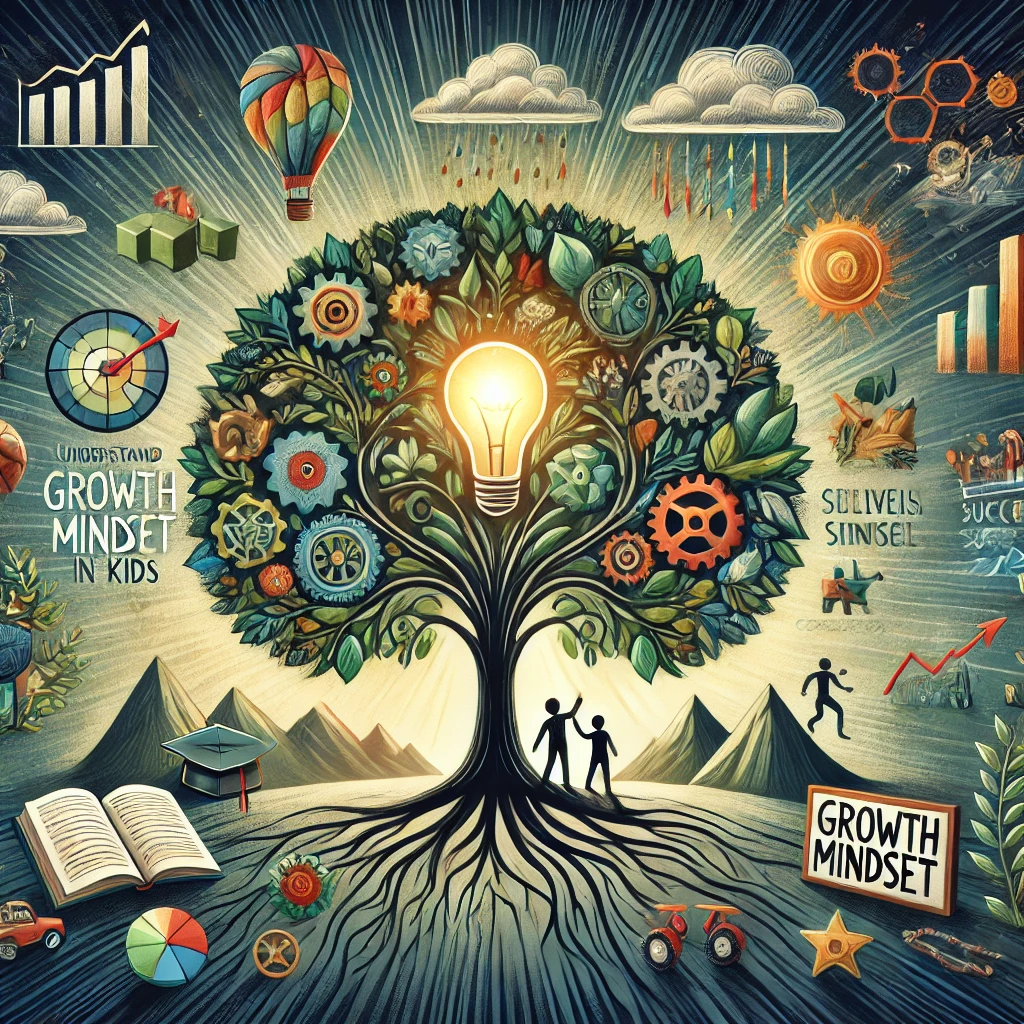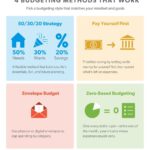10 Ways to Improve Your Growth Mindset
What is a Growth Mindset?
A growth mindset is the belief that intelligence and abilities are not fixed but can be developed over time with effort, learning, and perseverance. People with a growth mindset view challenges as opportunities to improve and grow, whereas those with a fixed mindset believe their talents and intelligence are static. This key concept, developed by psychologist Carol Dweck, encourages a love for learning, resilience, and continuous self-improvement.
1. Embrace Challenges

Why Embracing Challenges is Key
One of the core principles of a growth mindset is the ability to embrace challenges. People with a growth mindset view challenges as opportunities to stretch their abilities rather than obstacles to avoid. Research from Harvard Business Review shows that people who actively seek challenges in their work or personal life are more likely to experience growth and resilience.
How to Apply This: Actionable Steps
- Reframe Challenges: Instead of saying “I can’t do this,” shift to “I can learn from this.” This simple change in perspective can alter how you approach difficult situations.
- Break It Down: Divide a large, overwhelming task into smaller, manageable pieces to reduce the fear of failure and focus on one step at a time.
- Celebrate Progress: Celebrate each small win, reinforcing the belief that effort leads to progress, even if the challenge isn’t yet complete.
Real-World Example
Elon Musk, founder of Tesla and SpaceX, consistently faces technological challenges that others deem impossible. Instead of avoiding them, he tackles each with a growth mindset, knowing that even failures will offer valuable lessons that fuel future innovations.
2. Learn from Criticism

The Importance of Feedback
Constructive criticism is a vital tool for growth. In her research, Carol Dweck found that people who view feedback as a personal attack tend to stagnate, while those who use it as a guide for improvement consistently advance in their skills. Feedback is crucial because it provides an outside perspective on areas for development that you may overlook.
How to Learn from Criticism: Actionable Steps
- Separate the Person from the Issue: Criticism doesn’t reflect your worth, but rather points out where you can improve.
- Ask for Clarification: If the feedback is vague or unclear, ask for specific examples so you can address the exact issue.
- Make an Action Plan: Use criticism to create a list of actions you can take to improve. For instance, if your work lacks attention to detail, plan to double-check it before submitting.
Real-World Example
Ray Dalio, founder of Bridgewater Associates, attributes much of his success to his company’s radical transparency and open feedback policy. Employees are encouraged to give and receive honest feedback, which has helped the company thrive by fostering continuous improvement.
3. Cultivate Curiosity

Why Curiosity Matters
Curiosity fuels a growth mindset by driving the desire to learn. Research published by the University of California suggests that curiosity not only enhances learning but also improves memory retention. A curious mind actively seeks out new knowledge, allowing you to develop continuously.
How to Cultivate Curiosity: Actionable Steps
- Ask More Questions: Instead of accepting things at face value, ask why. This helps you dig deeper into subjects and expand your understanding.
- Explore New Topics: Dedicate time to learning something outside your usual scope. This could be through reading, podcasts, or engaging in new hobbies.
- Engage with Others: Surround yourself with people who have different perspectives or fields of expertise. Ask them about their passions and areas of knowledge.
Real-World Example
Steve Jobs, the co-founder of Apple, credited much of his innovation to his broad curiosity about subjects like calligraphy, design, and history. These diverse interests influenced his approach to creating groundbreaking technology products.
4. Focus on Effort, Not Results

Why Effort Matters More Than Outcome
A growth mindset values the journey over the destination. People who focus solely on results often miss the opportunity to learn from the process. A Stanford University study found that children praised for effort (“You worked really hard!”) were more motivated to tackle difficult tasks than those praised for intelligence (“You’re so smart!”).
How to Focus on Effort: Actionable Steps
- Track Your Effort: Keep a daily journal where you note the hard work and dedication you put into your tasks, regardless of the outcome.
- Set Process-Oriented Goals: Instead of setting a goal to achieve a specific result (like losing 10 pounds), focus on the habits that will lead to success (such as working out three times a week).
- Reward Yourself for Perseverance: Acknowledge the effort you put into learning and growing, rather than the final product.
Real-World Example
Michael Phelps, the most decorated Olympian in history, focused on his daily training regimen and the effort he put in, rather than solely on winning medals. His relentless focus on effort allowed him to maintain consistency and break numerous records.
5. Reframe Failures as Learning Opportunities

The Role of Failure in Growth
Thomas Edison famously said, “I have not failed. I’ve just found 10,000 ways that won’t work.” People with a growth mindset view failure not as a reflection of their inability but as an opportunity to learn what doesn’t work and why.
How to Reframe Failure: Actionable Steps
- Debrief After Failures: After a setback, take time to reflect on what happened and what you can learn from the experience.
- Shift Your Language: Instead of saying, “I failed,” say, “I learned.” This simple shift in language can help reshape how you see the experience.
- Try Again with New Insights: Don’t give up after a failure. Instead, use the insights gained to try a new approach.
Real-World Example
James Dyson, the inventor of the Dyson vacuum, went through 5,126 failed prototypes before successfully creating a product. Each failure taught him what wouldn’t work, leading to his eventual success.
6.Develop Resilience
The Power of Resilience
Resilience is the capacity to recover quickly from difficulties. Harvard Medical School reports that resilient individuals tend to be more positive, better problem solvers, and more adaptable, all of which are qualities of a growth mindset.
How to Build Resilience: Actionable Steps
- Practice Stress-Management Techniques: Engage in activities like mindfulness, yoga, or exercise to reduce stress during challenging times.
- Shift Your Perspective: When facing a difficult situation, ask yourself, “What can I learn from this?” instead of “Why is this happening to me?”
- Build a Support System: Surround yourself with people who encourage you to persevere and help you stay focused on your goals.
Real-World Example
Nelson Mandela exemplified resilience. Despite being imprisoned for 27 years, he never lost sight of his goal for a free South Africa. His resilience inspired millions, and his growth mindset allowed him to rise above adversity.
7. Surround Yourself with Growth-Minded People

Why Your Circle Matters
The people you surround yourself with have a significant impact on your mindset. A study from the University of Kansas found that social networks influence everything from motivation to goal achievement.
How to Find Growth-Minded People: Actionable Steps
- Seek Out Mentorship: Look for individuals who have achieved success through hard work and perseverance. Their stories can inspire and guide you.
- Join Growth-Oriented Communities: Attend workshops, online forums, or networking events where growth and development are prioritized.
- Encourage Mutual Support: In your existing relationships, practice giving and receiving feedback that focuses on growth and effort.
Real-World Example
The tech startup community in Silicon Valley is known for its collaborative, growth-oriented atmosphere. Entrepreneurs share ideas, offer feedback, and challenge one another, which fosters continuous improvement.
8. Set Learning Goals

Why Learning Goals Drive Growth
Learning goals help shift your focus from fixed results to the process of developing new skills. According to a study by the American Psychological Association, setting specific learning goals increases motivation and persistence, which are essential components of a growth mindset.
How to Set Learning Goals: Actionable Steps
- Be Specific: Set goals that focus on the process, like “I will learn how to code in Python by practicing 30 minutes a day.”
- Measure Your Progress: Track your progress regularly to see how far you’ve come. This will reinforce the importance of consistent effort.
- Adjust as Needed: Be flexible. If you hit a roadblock, adjust your learning strategies but keep moving forward.
Real-World Example
Bill Gates is a strong advocate for lifelong learning. He sets goals to read at least 50 books a year and constantly seeks to expand his knowledge in different fields, from technology to history.
9. Practice Mindfulness and Self-Reflection

The Role of Mindfulness in Growth
Mindfulness practices have been shown to improve focus, reduce stress, and enhance learning. According to research from Stanford University, regular mindfulness meditation can rewire the brain, promoting flexibility and adaptability, which are key components of a growth mindset.
How to Practice Mindfulness: Actionable Steps
- Start a Mindfulness Routine: Dedicate 5-10 minutes each day to mindfulness meditation. Focus on your breath and allow yourself to be present.
- Incorporate Self-Reflection: After a task or at the end of the day, reflect on what you’ve learned, how you’ve grown, and what areas need improvement.
- Stay Present: Focus on the task at hand rather than worrying about future outcomes. This helps build resilience and keeps you engaged in the learning process.
Real-World Example
Professional athletes like LeBron James practice mindfulness to stay mentally sharp and resilient. By staying present in the moment, they are able to perform at their best under pressure.
10. Celebrate Others’ Successes

Why Celebrating Others is Crucial
In a growth mindset, others’ success doesn’t threaten your own. Instead, it becomes a source of inspiration. Studies published in the Journal of Positive Psychology show that individuals who celebrate others’ successes experience increased motivation and happiness.
How to Celebrate Others’ Successes: Actionable Steps
- Acknowledge Achievements: When a colleague or friend accomplishes something, genuinely congratulate them. Focus on how their success can inspire you to keep growing.
- Learn from Them: Ask how they achieved their success. Their insights can provide valuable lessons for your own journey.
- Collaborate: Instead of competing, collaborate with others to build a supportive, growth-oriented environment.
Real-World Example
Warren Buffett, one of the world’s most successful investors, is known for celebrating the achievements of his peers. He often praises his friend and fellow billionaire Bill Gates, recognizing that success is not a zero-sum game.
Key Takeaways
- A growth mindset is the belief that skills and intelligence can be developed through hard work, learning, and perseverance.
- Embrace challenges and view failures as opportunities for growth.
- Focus on effort, cultivate curiosity, and learn from constructive feedback to build resilience.
- Set learning goals and engage in regular self-reflection to monitor your growth.
- Surround yourself with growth-minded individuals and celebrate others’ success to foster a culture of continuous improvement.
By integrating these strategies into your life, you can develop a more resilient, growth-oriented mindset that leads to personal and professional success.
Frequently Asked Questions
1. What are some effective ways to improve your growth mindset?
To improve your growth mindset, focus on embracing challenges, learning from criticism, and viewing failures as opportunities for growth. Practice resilience, set learning goals, and surround yourself with people who encourage growth and continuous improvement.
2. How can feedback help improve your growth mindset?
Constructive feedback can improve your growth mindset by highlighting areas for improvement. Instead of seeing feedback as criticism, use it as a guide to refine your efforts and strategies, which ultimately fosters growth and learning.
3. Can setting goals help improve your growth mindset?
Yes, setting learning goals can significantly improve your growth mindset. When you focus on the process of learning and personal development rather than just outcomes, you reinforce the idea that effort leads to improvement.
4. How does self-reflection improve your growth mindset?
Self-reflection allows you to assess your progress, identify areas of growth, and recognize the steps you need to take to improve. Regular reflection fosters self-awareness, which is key to improving your growth mindset.
5. What role does resilience play in improving your growth mindset?
Resilience is crucial in improving your growth mindset because it helps you recover from setbacks and continue pursuing your goals. By developing resilience, you strengthen your ability to overcome challenges and keep growing.
6. How can you improve your growth mindset when facing failure?
To improve your growth mindset when facing failure, reframe setbacks as learning experiences. Focus on what went wrong, how you can adjust your approach, and view failure as a stepping stone toward success.
7. Can practicing mindfulness improve your growth mindset?
Yes, practicing mindfulness helps improve your growth mindset by making you more aware of your thoughts and behaviors. Mindfulness allows you to recognize fixed mindset tendencies and consciously shift toward growth-oriented thinking.
8. Does surrounding yourself with the right people improve your growth mindset?
Absolutely. Surrounding yourself with individuals who value effort, learning, and persistence can significantly improve your growth mindset. Their influence encourages you to adopt similar attitudes and continuously strive for self-improvement.
9. Can embracing challenges improve your growth mindset?
Embracing challenges can improve your growth mindset by pushing you out of your comfort zone and allowing you to develop new skills. Each challenge you tackle helps reinforce the belief that effort leads to growth.
10. How does celebrating others’ successes help improve your growth mindset?
Celebrating others’ successes helps improve your growth mindset by fostering inspiration rather than competition. It reinforces the idea that success is achievable for everyone through hard work, persistence, and learning, motivating you to grow as well.









3 thoughts on “10 Ways To Improve Your Growth Mindset”